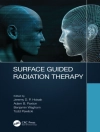Written by global leaders and pioneers in the field, this book
is a must-have read for researchers, practicing engineers and
university faculty working in SHM.
Structural Health Monitoring: A Machine Learning
Perspective is the first comprehensive book on the general
problem of structural health monitoring. The authors, renowned
experts in the field, consider structural health monitoring in a
new manner by casting the problem in the context of a machine
learning/statistical pattern recognition paradigm, first explaining
the paradigm in general terms then explaining the process in detail
with further insight provided via numerical and experimental
studies of laboratory test specimens and in-situ structures.
This paradigm provides a comprehensive framework for developing SHM
solutions.
Structural Health Monitoring: A Machine Learning
Perspective makes extensive use of the authors’ detailed
surveys of the technical literature, the experience they have
gained from teaching numerous courses on this subject, and the
results of performing numerous analytical and experimental
structural health monitoring studies.
* Considers structural health monitoring in a new manner by
casting the problem in the context of a machine
learning/statistical pattern recognition paradigm
* Emphasises an integrated approach to the development of
structural health monitoring solutions by coupling the measurement
hardware portion of the problem directly with the data
interrogation algorithms
* Benefits from extensive use of the authors’ detailed
surveys of 800 papers in the technical literature and the
experience they have gained from teaching numerous short courses on
this subject.
Despre autor
Charles R Farrar, Los Alamos National Laboratory, New Mexico, USA is currently the director of The Engineering Institute at LANL. His research interests focus on developing integrated hardware and software solutions to structural health monitoring problems and the development of damage prognosis technology. The results of this research have been documented in 50 refereed journal articles, 14 book chapters, more than 100 conference papers, 31 Los Alamos Reports and numerous keynote lectures at international conferences. In 2000 he founded the Los Alamos Dynamics Summer School. His has recently received the inaugural Los Alamos Fellows Prize for Technical Leadership and the inaugural Lifetime Achievement Award in Structural Health Monitoring. He is currently working with engineering faculty at University of California, San Diego to develop the Los Alamos/UCSD Engineering Institute and Education Initiative with a research focus on Damage Prognosis. He is associate editor for the Int. Journal of Structural Health Monitoring and Earthquake Engineering and Structural Dynamics.
Keith Worden, University of Sheffield, UK is Head of the Dynamics Research Group in the Department of Mechanical Engineering at the University of Sheffield. His research interests lie in the applications of advanced signal processing and machine learning methods to structural dynamics. He has authored over 400 research publications including two co-authored books on nonlinear structural dynamics and nonlinear system identification, two book chapters and over 130 refereed journal papers. He serves on the editorial boards of 2 international journals: Journal of Sound and Vibration and Mechanical Systems and Signal Processing. He was awarded ‘2004 Person of the Year’ (jointly with W.J. Staszewski) awarded by Structural Health Monitoring journal for outstanding contribution in the field.












